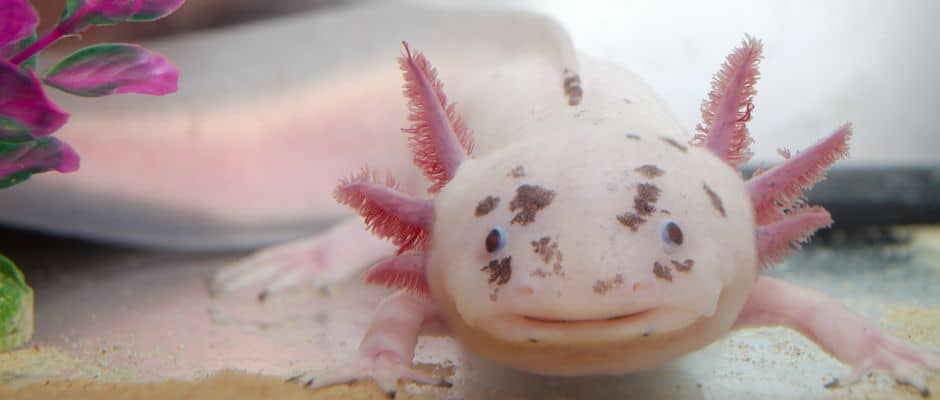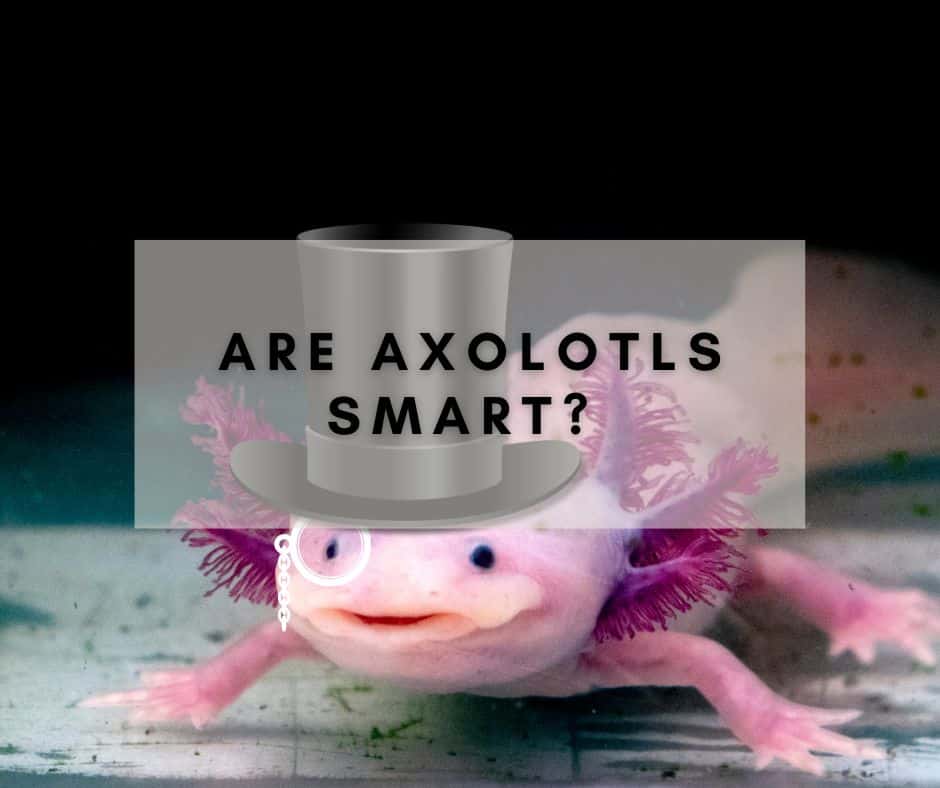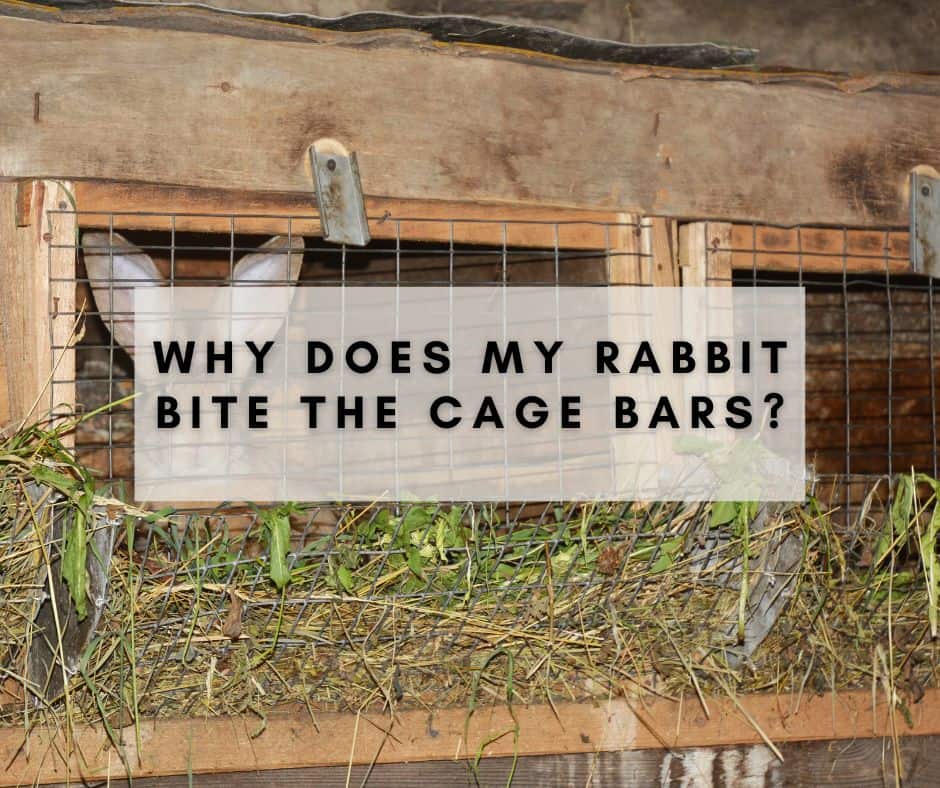An animal’s intelligence is highly reliant on its environment. As a result, the level of intelligence might vary from animal to animal.
In this sense, we can say axolotls are quite smart. They acquire and use the knowledge necessary for their survival.
The question is, how can their environment affect their reasoning? And what can pet owners do to develop it?
Contents
The Relationship Between Nature and Intelligence
Axolotls are usually solitary creatures. They prefer being alone without the disruption of another presence.
So, they did not develop the ability to sense hierarchal status, except that of prey and predator.
Moreover, not needing to build their shelter led them incapable of architectural understanding.
You might even see them struggling to get inside the hide that they definitely have overgrown.
And lastly, they have the disadvantage of having bad eyesight. We’ve discussed this further in the article about axolotls being blind.
But what does this all have to do with their intelligence?
Axolotls evolved their intelligence on survival.
Axolotls only evolved the capacity to sense their surroundings, detect danger, locate food, and recognize potential mates because of their environment.
Sensing their surroundings
Axolotls aren’t insensitive to their environment. Although, given how frequently they bang into the tank, that could be difficult to believe.
And to be honest, they do have poor vision, which leads me to my main point.
Axolotls had to learn to sense their surroundings because of their visual disadvantage.
They can detect movement and vibration via their lateral line.
Detecting danger
Axolotls are weak and can often be considered prey by larger aquatic creatures such as tilapia.
In fact, before these invasive species were brought to their natural habitat, they were regarded as the top of the food chain.
Hence, they developed the ability to recognize danger and move quickly to avert it.
Locating food
Don’t axolotls have trouble finding pellets when it’s right in front of their face?
Sure, but we have to understand that it’s because of their poor vision.
Axolotls are pretty good at locating food in the wild through their olfactory sense and lateral line (smelling and sensing movement through vibrations in the water).
The difference is that domesticated axolotls eat motionless food that sinks, which is inconvenient for their usual hunting method.
Simply put, domestic food doesn’t trigger their hunting senses. It makes them appear stupid when they are actually very skilled hunters.
Mating
Recognizing creatures of the same species, especially the opposite sex, requires a certain level of intellect.
Furthermore, knowing and completing the mating rite involves a higher level.
The ritual is rather straightforward, consisting of sperm droppings and mating dances.
Males need to get the attention of the females towards the area where they lay their sperm.
Then, the males will nudge the female’s reproductive organ toward it.
It provides for a certain level of social recognition, notably with axolotl mating practices.
Are axolotls smart enough to be trained?
Yes, they quickly adjust to new conditions, especially if they have only recently been domesticated.
Pet owners have reported their axolotls’ fear whenever they dip their hands into the aquarium for a cleaning.
But as days pass by, axolotls can recognize that the hand doesn’t mean any harm.
By extension, they also recognize owners and associate them with feeding time.
One has even reported successfully teaching their axolotl to eat food from their hand.
Which is smarter: wild or domesticated axolotls?
Since most of their intelligence comes from survival, it’s not surprising that wild axolotls are smarter.
They are forced to be because of their demanding environment, which needs them to be on their toes at all times.
In contrast to tamed axolotls, who have little trouble ‘hunting’ food and keeping an eye out for predators.
Hence, domestics do not have the chance to improve their intelligence and become complacent.
After all, the only thing they need to be concerned about is you because you are associated with feeding time.

How to develop an axolotls intelligence?
You have to make use of their existing skills and capabilities before teaching them new ones.
First: Knowing their strengths and weaknesses
Being able to adapt to your axolotl’s unique traits is the key to progress and development.
For example, showing them how to do something is ineffective since they have poor vision.
It’s much better if your demonstration is linked to their smelling ability or lateral line.
As in, dipping your hand directly into the water rather than displaying it in front of the glass.
Second: Tie their learning with survival
Survival is an essential component of their intelligence. As a result, they will be far more susceptible to tricks associated with it.
It’s similar to using food as a motivation. Axolotls will swim through anything if it leads to munching.
Third: Association
Have you ever heard of Pavlov’s dog? Over time, the dog learned to associate stimuli with food.
Teaching your axolotl a trick is similar, except the trick is associated with food instead of stimuli.
For example, if they swim through a hoop and immediately get food, they will begin to associate that hoop with food.
Why? Because they know that swimming through it will result in a tasty treat.
Fourth: Repetition
One of the main factors in Pavlov’s success is repetition. He managed to make the animal’s response to the stimuli instinctive.
Meaning the animal doesn’t have to think twice, it’s conditioned within its being.
Within a week, you should notice some improvement if you train them consecutively.
After that, you can cut back on the treats, but make sure to give them on occasion.
Conclusion
Axolotls, in their unique way, are intelligent creatures, particularly when it comes to their survival instincts. While wild axolotls may exhibit stronger intelligence traits due to their demanding environment, domesticated axolotls too can be trained to perform tricks and recognize cues, given the right positive reinforcement.
All this means that with some patience and the right approach, you can unveil the hidden intellect of your pet axolotl, revealing an intelligence not often associated with these fascinating creatures.







